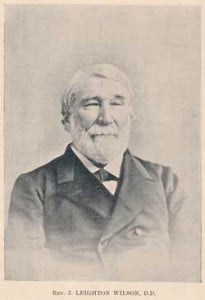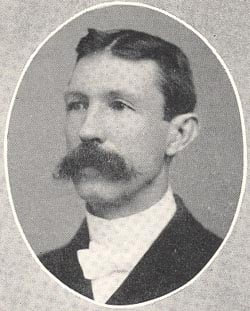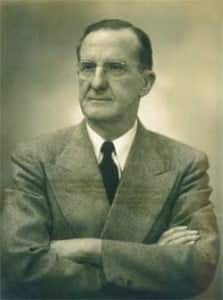THE VENERABLE SECRETARY EMERITUS, REV. J. LEIGHTON WILSON, D. D., DIED AT HIS HOME, NEAR MAYESVILLE, S. C., ON THE I3TH OF JULY, 1886.
His death, says one who waited by him, was emblematic of his life—calm, peaceful, beautiful.
 We are indebted to the pen of another for a sketch of Dr. Wilson’s life and character. He was born in Sumter Co., S. C., March 25th, 1809. He was graduated at Union College, N. Y., in 1829, and taught school one year at Hadnel’s Point, near Charleston, S. C. In 1833, he was graduated at the Theological Seminary, Columbia, S. C., being a member of the first class of that institution, and the same year was ordained by Harmony Presbytery as a missionary to Africa.
We are indebted to the pen of another for a sketch of Dr. Wilson’s life and character. He was born in Sumter Co., S. C., March 25th, 1809. He was graduated at Union College, N. Y., in 1829, and taught school one year at Hadnel’s Point, near Charleston, S. C. In 1833, he was graduated at the Theological Seminary, Columbia, S. C., being a member of the first class of that institution, and the same year was ordained by Harmony Presbytery as a missionary to Africa.
During the summer of 1833, he studied Arabic at Andover Seminary, Mass., and in the fall he sailed from Baltimore, Md., on a voyage of exploration to Western Africa, returning the following spring. As the result of his exploration, he decided on Cape Palmas, Western Africa, as the most promising place to begin his missionary work. In May, 1834, he was united in marriage to Miss Jane Elizabeth Bayard, of Savannah, Ga. In 1834, Mr. and Mrs. Wilson sailed for Cape Palmas, where they arrived at the close of the year. They remained at the Cape seven years. During these years, a church of forty members was organized, more than a hundred and eighty youths were educated, the Grebo language was reduced to writing, a grammar and dictionary of the language was published, the Gospels of Matthew and John were translated, and, with six or eight other small volumes, published in the native language.
In 1842, Mr. and Mrs. Wilson removed to the Gaboon River, 1,200 miles south of Cape Palmas, and commenced a new mission among the Mpongwe people. Here again the language was reduced to writing for the first time. A grammar, a vocabulary, portions of the Bible, and a number of small volumes, were published in the native language.
In the spring of 1853, owing to the failure of Mr. Wilson’s health, he and his wife returned to America. In the autumn of 1853, he entered the office of the Presbyterian Board of Foreign Missions in New York, and continued to serve as Secretary until the breaking out of the Civil War, when he returned to his home in the South. At the organization of the Southern Presbyterian Church, Dr. Wilson was appointed Secretary of Foreign Missions. This office he continued to hold until 1885, when the General Assembly, in view of his declining health, relieved him of the active duties of the office, and elected him Secretary Emeritus. During seven years of his active service in the office, the Home Mission work was combined with that of Foreign Missions, Dr. Wilson sharing in the care of both.
In 1854, Dr. Wilson published a volume of five hundred pages on “Western Africa, its History, Condition and Prospects.” Dr. Livingstone pronounced this the best volume on that part of Africa ever published.
In 1852, a strong effort was made in the British Parliament to withdraw the British squadron from the coast of Africa, under the impression that the foreign slave trade could not be broken up. Dr. Wilson wrote a pamphlet, showing that the impression was erroneous, and indicating what was wanting to make the effort to suppress the slave trade successful. The pamphlet fell into the hands of Lord Palmerston, and was, by his order, published in the United Service Journal, and afterwards in the “Blue Book” of Parliament. An edition of 10,000 copies was circulated throughout the kingdom. Lord Palmerston informed Dr. Wilson that this pamphlet put an end to all opposition to the continuance of the squadron; and in less than five years, the trade itself was brought to an end.
During his residence in New York, Dr. Wilson acted as editor of the Foreign Department of the Home and Foreign Record. In our own Church, he began The Missionary, of which he continued to be editor till recently. He published more than thirty articles in the Southern Presbyterian Review and in other literary and scientific reviews. While in Africa, Dr. Wilson procured and sent to the Boston Society of Natural History the first specimen of the gorilla known in modern times.
The commanding presence of Dr. Wilson, and his affable and courteous address, will be remembered by many in the Church. His features indicated physical and intellectual strength. His varied information made him the attractive centre of the social circle. He was just in judgment, wise in counsel, practical in methods. His public life covered more than fifty years. These fifty years have recorded wonderful progress in the Foreign Mission work. They constitute a great missionary age in the history of the Church. Amongst the great workers in this branch of Christian service, Dr. Wilson has stood with the first. By the grace of God, he served his generation nobly, received the loving veneration of the people among whom he lived, and will long be remembered among us as a prince and a great man.
[excerpted from The Missionary (Richmond, VA), vol. 19, no. 8 (August 1886): duplex insert between pages 113 and 115.
Works concerning the Rev. John Leighton Wilson:
Bucher, Henry H., Jr., “John Leighton Wilson and the Mpongwe: The ‘Spirit of 1776’ in Mid-Nineteenth Century Africa,” Journal of Presbyterian History, 54.3 (Fall 1976) 291-316.
DuBose, Hampden C., Memoirs of the Rev. John Leighton Wilson, D.D., Missionary to Africa, and Secretary of Foreign Missions (Richmond, VA : Presbyterian Committee of Publication, 1893), hb, 336pp.; 20 cm.
Robinson, William Childs, “John Leighton Wilson – Pioneer Foreign Missionary,” The Presbyterian Journal, 18.36 (6 January 1960): 9, 10-11.



